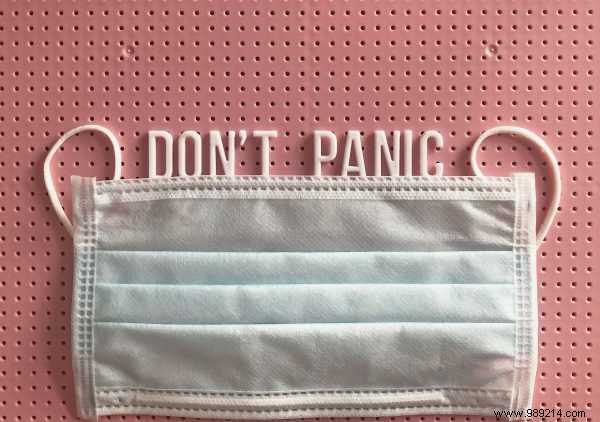
Fear is healthy. It protects you from possible danger. But what if you are always plagued by anxious thoughts? This is how you get rid of your fear…
One day I flew to Turkey with a group of friends. On the plane all my friends turned out to have a fear of flying. And not a little. As they sat in their seats, as white as their eyes closed, I spoke to them in a calming manner. The plane, I was told, was the safest mode of transportation after the elevator. Fear was unreal, because nothing could happen to us.
Once in Turkey we took a perilous bus ride along ravines, which, strangely enough, none of us feared. When we arrived at the hotel, we all got into the elevator. Between the first and second floors, the lights went out and the elevator got stuck. I was seized by a frantic fear. I couldn't think clearly anymore, I started to sweat and tremble and most of all I really didn't want to be in that elevator. My friends laughed and said in unison that nothing could happen to us because the elevator by plane was one of the safest means of transport. And they also subtly added that my fear was unreal.
If you ever fear something that you know can't hurt, you will understand that no one can persuade you not to be afraid with facts. All you can do is reassure yourself. This is how you do it:
Look for the danger correctly. As difficult as it may seem to you, expose yourself to the danger you fear so much. Research shows that this is the best way to overcome fear. By enduring the fearful thoughts and the accompanying tension, you notice that the world is not going to end. The more often you face a fearful situation, the more your self-confidence grows. Avoiding danger only increases fear.
Develop alternative expectations. Anxious thoughts usually come in the form of an expectation that something bad is going to happen. For example, fear of flying consists largely of the fear of crashing, while the chance of that happening is exceptionally small. Not the statistical facts, but superstitions and emotions determine your fear. Remember that for every fearful expectation there are several alternative expectations. For example, if your first thought is, “I'll get stuck in the elevator,” then tell yourself, “Even if I get stuck, I won't choke.” You can reassure yourself by thinking about exactly what it is. what can happen.
Write down the benefits of your fear. There are not only drawbacks to being anxious. It often gives you extra attention, everyone takes you into account and you are exempt from 'scary' activities. You will gain more insight into your anxiety behavior by making a list of all the pros and cons. How pleasant does your life look when you are rid of your fear? What are the disadvantages of the change? How are family and relatives now adapting to your fears? What will change when you overcome your fear? Perhaps that fearful thing also has something pleasant.
Relax your hands. Simple relaxation exercises help reduce anxiety. A large Italian study shows that exercises that anyone can do anywhere are the most effective. One of them is this:let your hands hang completely relaxed next to your body for a few seconds at a time. Relaxed hands ensure that the whole body relaxes. In 70 to 80 percent of the cases, this exercise led to a clear reduction of anxiety and tension.
Keep breathing. Anyone who does yoga has known this for a long time, but breathing is the best way to calm yourself. Place your hands on your stomach, feel your breathing, focus on slow inhalation and exhalation, if necessary count how long you inhale and exhale. If you focus on your breathing, you can't also think about spinning, crashing, speaking in public or being trapped in an elevator, just to name a few scary things.
Text:Manon Sikkel, Image:Tonik/Unsplash
Also read:
Suffering from puncture anxiety? These steps will help you get rid of it
Top 10 most common phobias and fears among women
Pee fear, not daring to pee in public